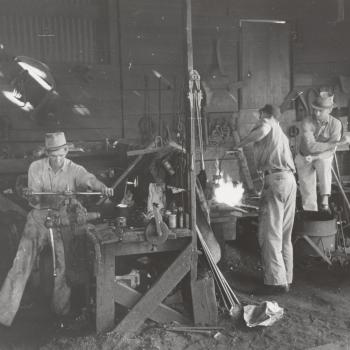Who invented Christmas?
Our Blessed Lady is a good answer. In about 3 B.C. she gave birth to Jesus, who became known as The Christ. St. Joseph, while not Jesus’ natural father, is a fair answer because he is the main character in St. Matthew’s rendition of the Bethlehem story. St. Francis of Assisi (1181-1226) is another possibility because he is popularly credited with devising the Christmas Pageant.
But who created Christmas as we know it with all the gifts and indoor tree and special food and charitable donations and a day off from work? Although it is impossible to claim that Christmas is historically new, it is only in the last 160 years or so, and particularly since World War II, that Christmas (other than during Covid-19) is turkey, candy, hams, greeting cards, shopping sprees, family reunions, office parties, seasonal songs and shows for children. For most of Christian history Easter was the big feast; Christmas not so much.
By 1843 Charles Dickens (1812-1869) had written five well-received novels and then three duds. He was, at age 31, in debt with family obligations. Walking the streets of Manchester that fall he thought about Christmas and children. Returning to his London home he wrote A Christmas Carol in a fury. His publisher didn’t like it, so Dickens paid for the printing himself—adding to his debt. The story (followed by four more Christmas-themed novellas) took off and is now available in many editions and through many adaptations. For example, Acta (www.actapublications.com) sells a $14.95 edition tied in a red ribbon and with an introduction by theologian Jack Shea. My favorite adaptation is the 1992 Muppet Christmas Carol.
It was Dickens who revived and updated a celebration connected to the nativity of Christ. He promoted forgotten customs and introduced some new ones that now define the holiday. In particular he lifted up practices consistent with Christ’s message: compassion, regard for family life, charity, humane working conditions and decency.
Dickens was a contemporary of Karl Marx (1818-1883). Both explored the contradictions within industrial capitalism: How is it that prosperity results in widespread poverty? Marx and Dickens saw child labor, overcrowded housing, illness, unemployment and meanness in all the cities they visited. The remedy for Marx included violence, which he thought was inevitable. Dickens’ remedy is not as obvious as Marx’s. Dickens’ stories are about character. They are about the tension between on one hand bad people and corrupt institutions and on the other hand people with good character and noble institutions. The stories hinge on the possibility of redemption.
The complexity of the good guys is Dickens’ genius. They are usually not romanticized. Poverty itself does not make a person sympathetic or noble. A poor person can drink or carouse too much, can cheat at times and make bad decisions. But poverty is not a sin, as unfortunately it is considered, even today, by those who distinguish between the deserving poor and the undeserving poor.
Dickens likewise does not romanticize those who help the poor. Donating alms, used clothing and the like at this time of year is not a special favor. It is not, please be reminded, particularly meritorious. Charity is simply rendered because a recipient is entitled to proper assistance and the donor is quite capable of helping out.
This holy season is designed to reinforce behavior that should occur all year long: People should look out for people; families should treasure one another; institutions that lose their purpose and degrade human dignity can be reformed; joy and celebration are essential to the human prospect every day of the year.
Droel edits INITIATIVES (PO Box 291102, Chicago, IL 60629), a free printed newsletter on faith and work.










